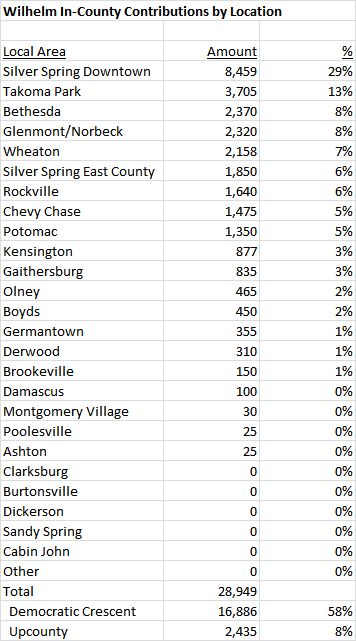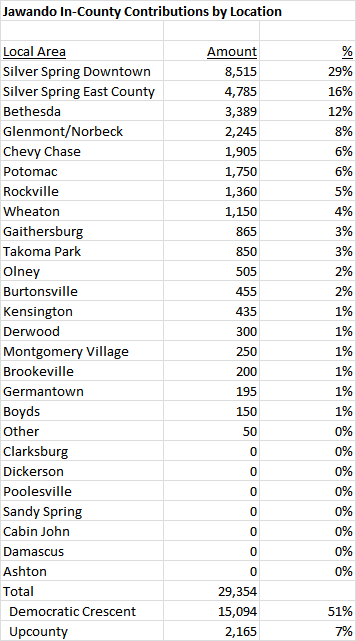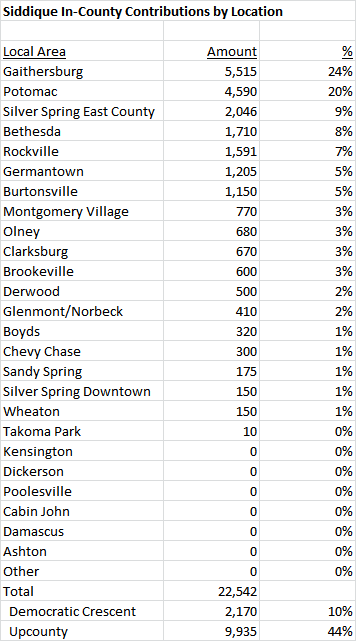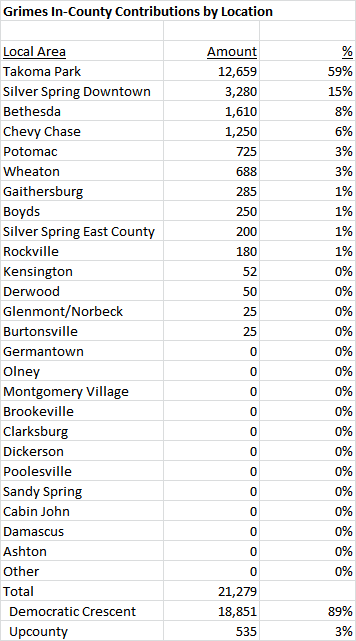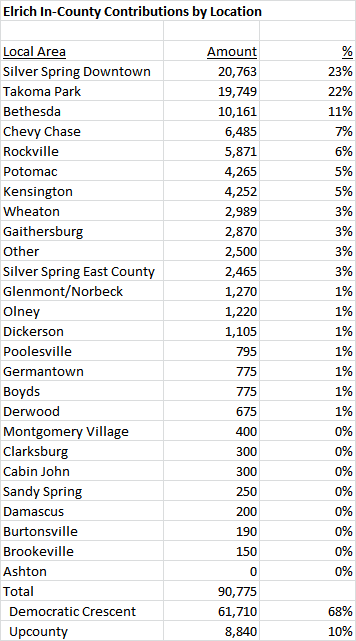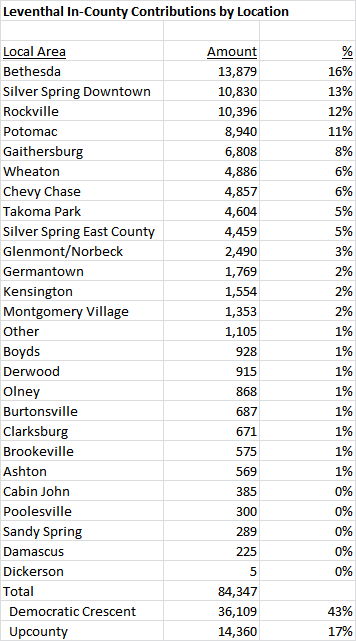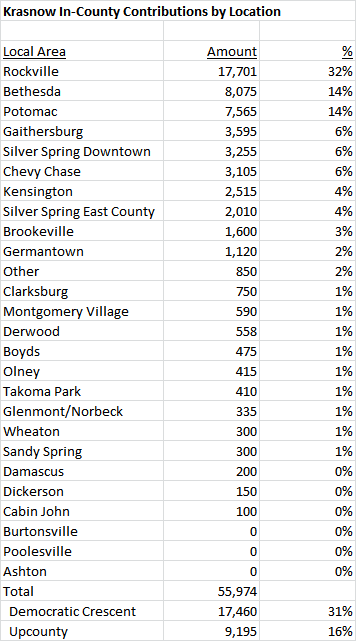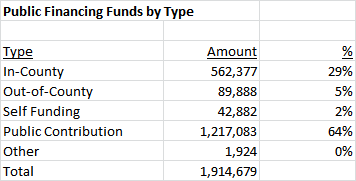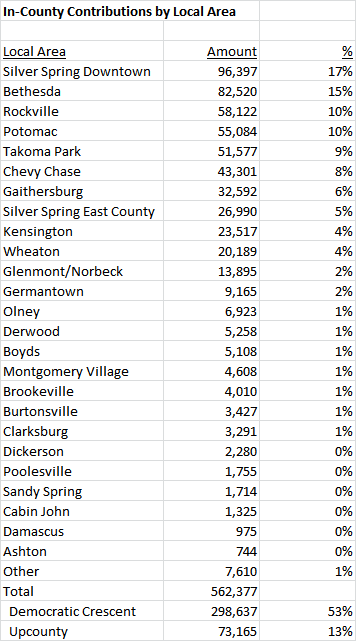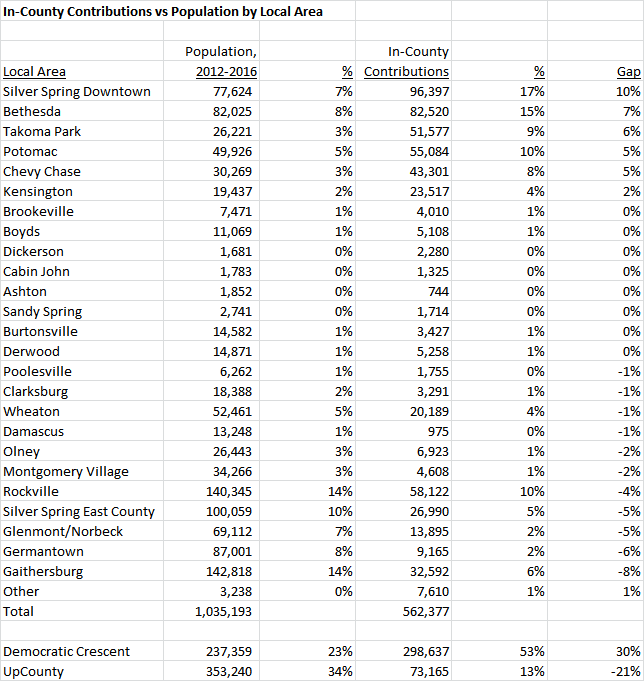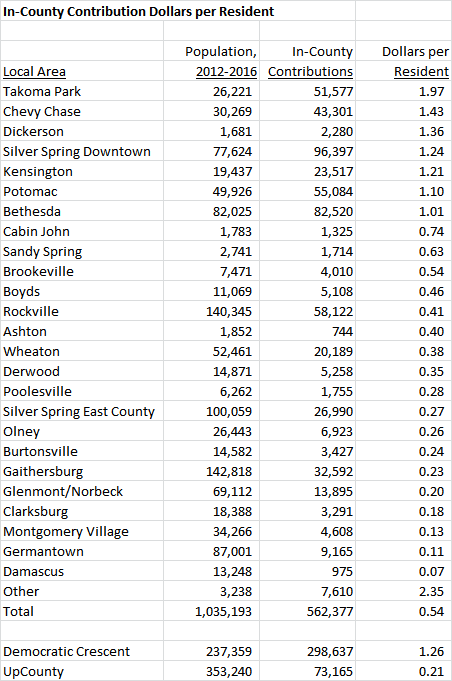By Adam Pagnucco.
We conclude with the remaining five Council At-Large candidates who have qualified for matching funds in public financing.
Chris Wilhelm
Wilhelm, an MCPS teacher, is becoming a progressive darling of the Council At-Large race with endorsements from MCEA, the Laborers, Progressive Maryland and the Democratic Socialists. His contributions are heavily tilted towards the very liberal areas of Downtown Silver Spring and Takoma Park. The question for Wilhelm is whether he can hang with the other strong competitors going for those same votes, especially Hans Riemer, Evan Glass, Will Jawando, Danielle Meitiv and Seth Grimes and find a way to break into the top four. Wilhelm is a smart and passionate campaigner so don’t count him out.
Will Jawando
Jawando is the leading fundraiser in Silver Spring East County, which we define as zip codes 20903, 20904 and 20905. This area overlaps with the section of District 20 in which he performed best in his 2014 race for Delegate. Jawando has put together a long list of institutional endorsements that exceeds even the race’s sole incumbent, Hans Riemer, and includes the Apple Ballot. (He was also endorsed by the Laborers Union shortly after we published the latest list.) Now Jawando has to raise enough money to get the word out and finish the job. If he does, he will become just the second Council Member of color to win an At-Large seat after Ike Leggett left in 2002.
Danielle Meitiv
Meitiv, the famous Free Range Mom, is so far the only female at-large candidate who has qualified for public matching funds. (Shruti Bhatnagar came close but has been ruled ineligible by the State Board of Elections. Brandy Brooks says she has enough contributions to qualify but has not yet filed with the state.) Meitiv’s contribution geography resembles the all-candidate average and is largely based in the Democratic Crescent that is so critical to winning countywide elections. If she continues to raise money, her status as one of the few competitive at-large women will help her in a primary electorate that is nearly 60% female.
Mohammad Siddique
The good news is that Siddique is the second-leading fundraiser in Gaithersburg ($5,515) after George Leventhal ($6,808). The bad news is that he has a minimal presence in Democratic Crescent areas like Chevy Chase, Downtown Silver Spring and Takoma Park that are critical to countywide performance.
Seth Grimes
Grimes, a former Takoma Park City Council Member, has collected a majority of his contributions from the city with relatively little money coming from elsewhere in the county. Takoma Park is not a big enough base from which to win a countywide election by itself. Grimes needs to pick it up elsewhere to have a chance for victory.

